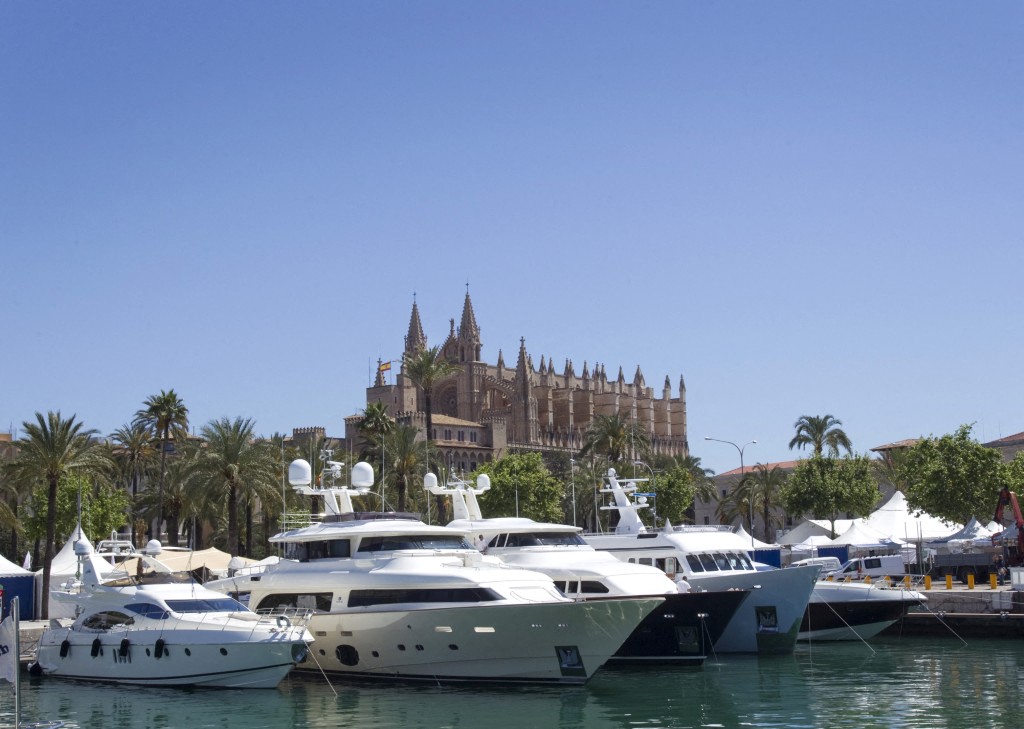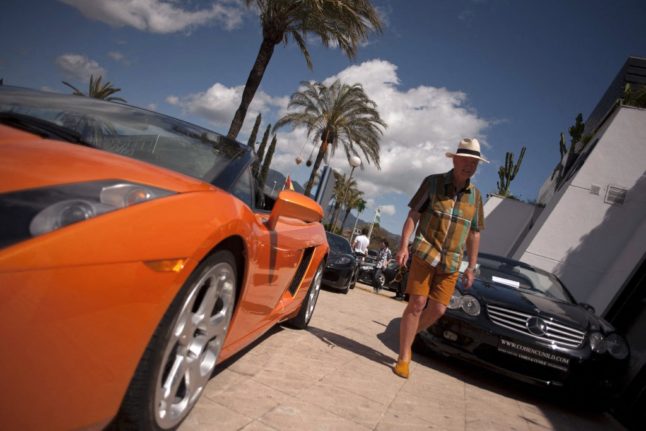The Spanish government announced it was scrapping the golden visa scheme this week, putting an end to the system that allowed wealthy non-EU nationals to get residency by investing at least 500,000 on property.
You can read The Local’s full coverage of the decision and its implications here and linked below.
READ ALSO:
- When and why is Spain axing the golden visa?
- What the end of Spain’s golden visa means for foreigners
Many Spaniards blamed the golden visa for inflating property prices, though there’s some debate on how true that is.
But golden visas have also had another knock-on effect on Spain and the property market in certain parts of the country: speeding up the gentrification process in some neighbourhoods and even turning some of its cities into ‘new Miamis’ by attracting Latin Americans and rich foreigners from around the world.
Wealthy foreigners have long seen Spain as a desirable location, but the golden visa eased the process for many from places like Russia, China, Mexico and Venezuela.
Though there’s no updated post-pandemic nationality data on golden visa holders in Spain, the Chinese have dominated with a total of 2,712 visas issued since 2019, according to a report on golden visas by Transparency International. Russians were the second most common recipients of golden visas, with a total of 1,159 visas. For context, UK nationals were issued just 177 golden visas in that time.
However, in the last few years it’s been Mexicans and Venezuelans that have been arriving in growing numbers, many via the golden visa scheme. The glitzy Florida city was for many years the destination Latin Americans dreamt of in search of a better life, but also those with an eye for luxury.
But the sunny Florida city now has a new rival across the Atlantic: Madrid, and wealthy foreigners from around the world have flocked to the capital and other Spanish cities.
Golden visa destinations
Data has shown exactly where golden visa holders were buying property in Spain, and it seems they were very heavily concentrated in a few cities.
Since 2013, Barcelona, Madrid and Málaga accounted for almost three-quarters (70 percent) of the ‘golden visas’ granted between them.
Most of the investments were in Barcelona, which accounted for 33 percent of the residence permits granted for property purchases. Barcelona was followed by Madrid and Málaga province, particularly in Marbella, which accounted for 19 percent and 18 percent of the total respectively.
These three provinces, together with other traditional tourist hotspots such as Alicante (10 percent), the Balearic Islands (5 percent) and Valencia (4 percent) made up 90 percent of golden visa purchases.

Madrid, the ‘Miami of Europe’
Madrid has really taken the crown in terms of earning comparisons to Miami as a destination for the super rich from Latin America, a safe haven away from political and economic instability back home.
A recent BBC article described Madrid as the ‘Miami of Europe’ and the golden visa has played role in that. South Americans, particularly Venezuelans and Mexicans, are increasingly the largest groups among the super wealthy in Madrid and golden visa rules allow wealthy Latinos to speed up the gentrification process.
South Americans have bought up 60 percent of the luxury properties for sale in the Madrid market in recent years, ahead of the British, French and Americans. Many of these purchases will have been through the visa scheme.
In the traditionally well-to-do Salamanca area, already a long-established luxury neighbourhood in the city, entire buildings have been bought by Mexican and Venezuelan buyers and become known as ‘Little Caracas’ after the Venezuelan capital.
According to figures cited by the BBC, Mexicans alone have invested more than €700 million in the Spanish real estate market since 2020, the vast majority of that in the capital.
Marbella
Málaga, more specifically the smaller city of Marbella a little further down the coast, has long been known as a luxury destination popular with footballers, social media stars and millionaires looking for the high life.
Whereas Latinos seem to favour Madrid, the Costa del Sol area more generally has long been particular with wealthy Russians and some oligarchs. Marbella’s football team even had a Russian millionaire as club president at a time.
In 2022, there were reportedly 3,000 Russians in Marbella with properties valued at €1 million or higher.
“You see them every day on the Old Course at La Zagaleta,” Marbella luxury real estate agent Natasha Harrison told Spanish daily El Periódico de España.
“They began as the exclusive guests of many Britons and little by little they took over when it came to organising charity and philanthropic parties; the average budget for these parties can be more than €100,000”.
It has even been rumoured in the Spanish press that Vladimir Putin himself has (or had) a luxury mansion in the La Zagaleta area of Benahavís, a village close to Marbella popular with oligarchs, though the most likely explanation seems to be a mix up with initials.
With an increase in direct flights from Málaga to other high-flying destinations such as New York and Doha, there’s been an uptick in the pre-existing luxury property market in the area in recent years — exactly the types of places that wealthy golden visa holders would buy property.
In 2023, 7.1 percent of property purchases in Marbella were linked to golden visa applications.
When Putin invaded Ukraine in February 2022, the Spanish government reportedly stopped issuing golden visas to Russian citizens.



 Please whitelist us to continue reading.
Please whitelist us to continue reading.
Member comments